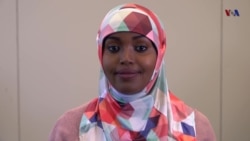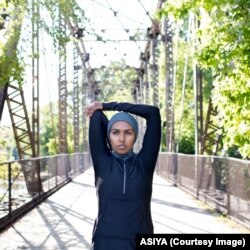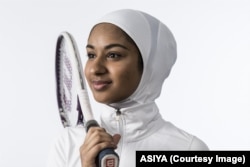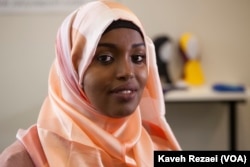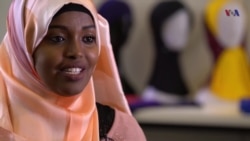When in public, Muslim woman and girls may wear a hijab, a head or body covering that conforms to Islamic standards of modesty. These women may also want to participate in sports without compromising their religion and clothing, and with a sport hijab, they can do just that.
Fatimah Hussein is co-founder of ASIYA (pr. ah-SEE-yah), an activewear company that is changing the lives of Muslim girls and women by producing culturally-appropriate athletic wear. Hussein owns the business with partner Jamie Glover, and the company is named after a woman revered in Islamic history.
“Many young Muslim girls when they start playing sports, can’t focus completely on the game, because they are also focus on their hijab. They either take it off or don’t play,” Hussein says. “They didn’t have any accessibility of a sport hijab that they felt very comfortable with. Many hijabs require pins as fasteners. When playing a sport, hijabs can be hot and unwieldy. If it comes unraveled, another player could trip on it, or the pin could jab the wearer or others, making it dangerous for everyone. So, I was like, there should be some kind of a solution for this,” says Hussein.
A sports hijab was the answer. ASIYA markets hijabs that are for fast paced physical activity. The headwear is made from a sweat-wicking fabric, designed to be comfortable and safe for play.
Hussein, a Muslim woman was born in Mogadishu, Somalia, and came to the United States at age six with her parents and sister, fleeing civil war. She says that she played sports in school as a child but was preoccupied with thoughts of her hijab.
“This doesn’t look right, this is falling, I don’t feel comfortable inside,” she says she remembers thinking.
Hussein is still involved with sports in her hometown of Minneapolis, Minnesota. In her free time, she is a basketball coach. She is also a licensed social worker.
“A lot of girls in our community want to try new things and play sports, but they aren’t confident, says Hussein. “They’re constantly told they shouldn’t be doing something boys are able to do, they get intimidated,” she says.
Hussein also found an indoor neighborhood gym for girls to play sports on their own.
She also established Girls Initiative in Recreation and Leisurely Sports (G.I.R.L.S), a nonprofit program for Muslim girls.
Hussein talks frequently of identity, community, and taking pride in being a Muslim. She says the hijab is important for Muslim women.
“It makes a statement about her identity. Anyone who sees her will know that she is a Muslim, she is modest and has a good moral character,” says Hussein.
Hussein says ASIYA is helping to break down barriers for Muslim girls who want to participate in sports.
“We view ASIYA as a social venture looking to increase participation rates, as we believe there is huge value in sports participation for young girls in developing critical skills that set them up for success later in life.”




